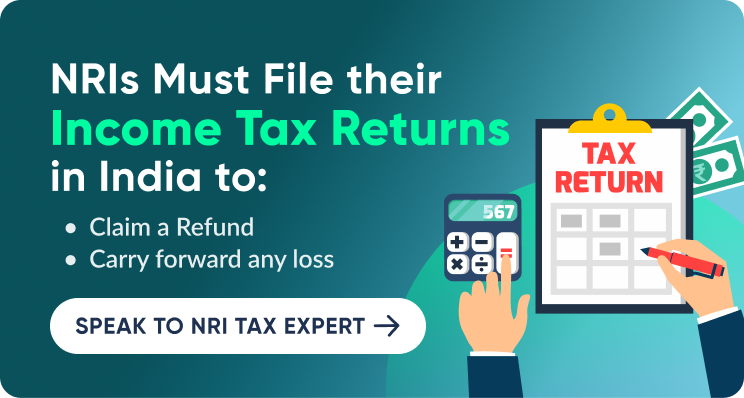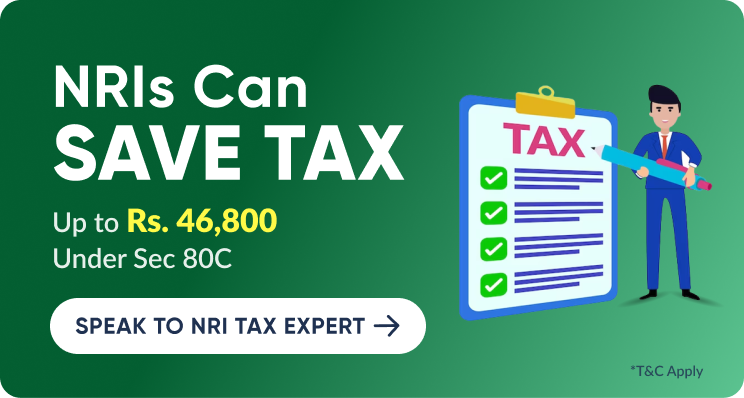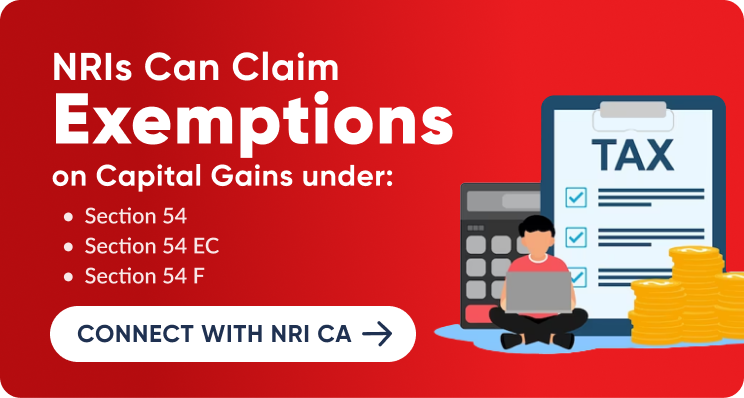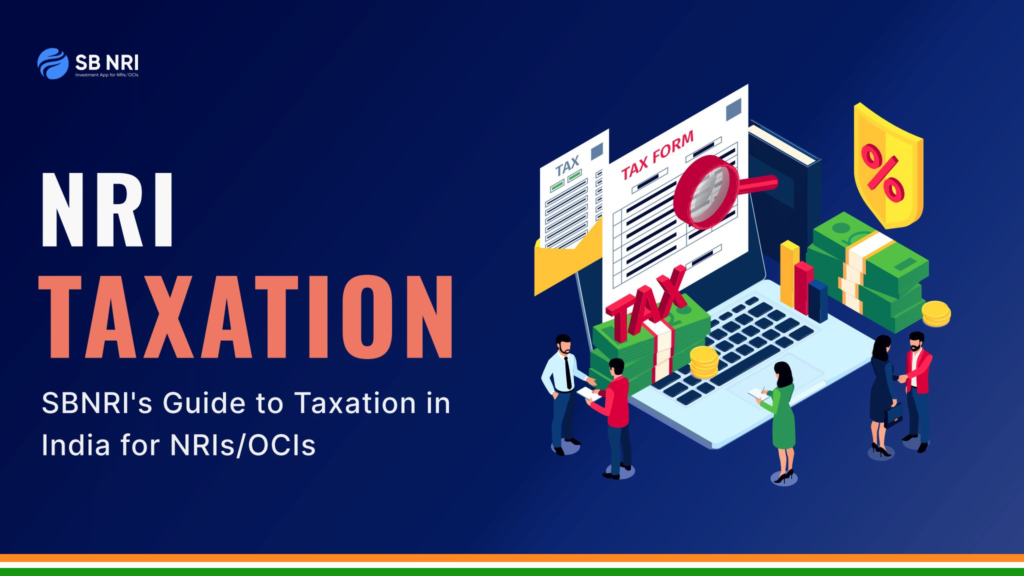Even though taxes are necessary for the economy, they often come across as a burden for people. Now imagine the case of NRIs who have to pay these taxes twice on the same income. Frustrating right? If you are wondering how to avoid double taxation, then you have come to the right place. In this blog, we will understand how double taxation works and how you can avoid it.

What is Double Taxation?
NRIs living in other countries must comply with that country’s tax laws and pay taxes there. However, it is pretty standard that they have certain significant investments in India (home country), and thereby they become liable to pay taxes on profits acquired from those investments in India.
Paying tax on gains from their investments makes sense but the difficulty arises when they have to pay tax on the income and gains in both the countries i.e their resident country and India.
Here the NRI’s income is getting subjected to a dual tax. This whole concept is termed as double taxation. However, we do have a solution to prevent it and that is through DTAA.
Types of Double Taxation
There are two forms of double taxation:
- Corporate Double Taxation – This pertains to the taxation of corporate earnings through both corporate taxation and dividend taxation (applied to dividend distributions).
- International Double Taxation – This relates to the taxation of foreign income in both the country where the income is earned and the country where the investor lives.
In this blog, we will focus on International double taxation.
What is Double Taxation Avoidance Agreement (DTAA)?
The Double Taxation Avoidance Agreement (DTAA), an agreement between India and other countries, provides relief from paying dual taxes, especially for NRIs who live abroad and getting paid in India. Non-resident Indians in any of the countries with which India has entered into DTAA can avail of the tax benefits by submitting requisite documents.
To explain this in simpler terms, let us assume Mohan, an NRI working as a product manager in the US. But he has also made investments in India on which he earns returns. This income can now be taxable in both India and the US if he repatriates the capital gain to the US. This is where the Double Taxation Avoidance Agreement comes into place. As a result, Mohan will have to pay tax only once.

DTAA Rates
DTAA signed by India with other countries defines a specific rate at which tax has to be deducted on income earned by the residents of the participant countries. This implies that when an NRI earns an income in India, the TDS applicable would be according to the rates fixed in the DTAA with that particular country. These DTAA rates vary from country to country.
How to Avoid Double Taxation in India?
NRIs can take advantage of double taxation relief in two ways given below:
1. Tax Credit Method
Through the Tax Credit Method, NRIs can claim a tax credit of tax paid in the source country in which the income is earned. Suppose, Geeta is an NRI who gets paid by a US firm. Here the source nation and home country are the US and India respectively. When Geeta’s tax liability is calculated, the tax paid in the US will be recognized as a tax credit against the overall tax liability of Geeta in India.
2. Tax Exemption Method
In the Tax Exemption Method, the income is taxed in one country and exempted in another country. Let’s say Mrs. Geeta earns a dividend in India. This income will be taxed solely in India. Now, if she earns such income in another country, the income will be taxed solely in that country and not in India.

Types of Income under DTAA
The following are the types of income of NRIs, where the DTAA can help them avoid paying double taxes if income from such sources is taxable in their home/ resident country :
a. Salary received in India
b. Interest earned from the savings bank accounts in India
c. Fixed Deposits in India
d. Providing services in India
e. Capital Gains arising from the sale or transfer of capital assets in India
f. Real-estate property located in India

Calculate your TDS Refund with SBNRI’s TDS Refund Calculator
A TDS refund is the process of reclaiming the excess tax deducted at source by the payer if the actual tax liability of the taxpayer is lower than the TDS deducted. This situation typically arises when the income tax calculated on the total income is less than the TDS already deducted. To claim a TDS refund, taxpayers need to file an income tax return (ITR). The Income Tax Department processes the ITR and verifies the details. If the tax department finds that the TDS paid is more than the actual tax liability, the excess amount is refunded to the taxpayer.
You can easily find out how much tax refund you can get by calculating your TDS Refund from this TDS Refund Calculator.
Access SBNRI’s Exclusive NRI Taxation Guide

NRIs and OCIs can now access SBNRI’s exclusive NRI Taxation Guide covering in-depth information about DTAA, Gift Tax, Rental Income Tax, ITR Filing, Types of ITR Forms for NRIs, Capital Gain Tax, Income Tax, and more. The report will help you understand India taxation on mutual funds, other asset classes and how you can comply with the regulations.
Access NRI Taxation report here
To Conclude
To avoid double taxation, India has signed the Double Taxation Avoidance Agreement (DTAA) with 80+ countries. Under this agreement, an individual can steer clear of double taxation by having money earned overseas exempt from taxation in the nation where they reside or by receiving a credit for taxes paid abroad.
Contact SBNRI
For queries related to NRI tax deductions and exemptions, you can CONTACT US. You can also download the SBNRI App to connect with our NRI Tax / investment experts and get end-to-end assistance related to NRI tax filing. SBNRI will also help you get a lower TDS Certificate.
FAQs
Given below are some of the benefits that NRIs can avail under DTAA:
a. Dual tax elimination
b. Lower tax rates
c. Profitable investments
d. Prevention of tax evasion
An NRI has to submit the following list of documents if they want to avail benefits of the DTAA-a. Self-attested passport and visa copy
b. Self-attested PAN card copy
c. Self-declaration plus indemnity format
d. Tax Residency Certificate (TRC)
e. PIO proof copy if applicable



